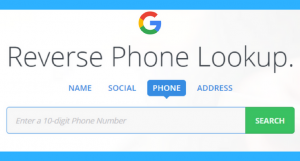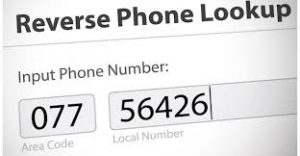People need access to phone numbers every day. Many use cell phones. You may lose your contact list or need to find the number of a new person, which is not an easy task. You may have a person’s phone number with no name attached, which is equally frustrating. Online services offer information, but it is rarely free; or they say there is a free search, but you must pay for the results.
Reasons to Search
There are many reasons you might need to search for a mobile number. The person may have given you the number but you wrote it down wrong; you may have lost it; you may find a phone number with no name attached; your contacts were deleted or your phone was stolen or hacked; you want to locate an old friend or family member.
Getting Information
You’ve lost your contact list on your phone and need to get the numbers back. Users can check for backups, go through text messages or phone calls, and publish on social media. You may have to search out a cell number by the person’s name, or simply wait for the person to call you.
Reliable Services
Landlines are easy to track down, but cell phones are not. You can access a reliable lookup service to get a person’s cell phone number. Apps help people to search for phone numbers by name or through a reverse phone lookup. The services work for iPhone and Android. Some companies offer free trials or discounted searches before requiring a membership.
Popular search sites:
- Whitepages
- CallerSmart
- Zaba Search
- Bing
- Kiwi Searches
- Searchbug
- NumberVille
Search by Name
You can search for a phone number by the person’s name. When searching you should add the city and state for the most accurate results. Some results show many people with the same name. You can choose the right person by address, age, workplace or family members and associates.
Reverse Phone Search
You find a piece of paper with a phone number written on it, but no name. You don’t call because the person who answers may be a potential boss or date and you don’t want to embarrass yourself. Use the same search app or program that you use to search for a person by name. Type in the phone number you wish to search and wait for the results. The results may show a list of similar numbers. The company might charge you to get the specific number, unless it belongs to a business.
Social Media Sites
Hundreds of millions of people use social media sites every day. Many share their phone numbers and email addresses. Enter a person’s name in the search bar and sort through the results. You can add a location is the name is common or use quotation marks to narrow the search, e.g., “Jane Jones.” You may not get much information, but it will be accurate and free.
Too Much Information
We live in the Information Age. People want to know more about us than just our phone numbers. They can’t get that information from the phone book or Yellow Pages. Many search engines and phone lookups give out a lot of information including work history, educational history, criminal and arrest records, social media profiles, bankruptcy and court information.
Sensitive Information
People can access sensitive information about us online. Many services require you to agree to avoid using the information against a person. It’s important to run a search on yourself to find available information. It could save you from identity theft.
How to Protect Your Number
We get frustrated over receiving calls from unwanted parties. The FTC reports that more than 30 billion robocalls were made in 2017. The number continues to increase. The callers use the same phone search techniques to get our phone numbers. There are other ways cell phone numbers are made available to the public. Here are some ways to protect your number.
Keep Your Number Private
We want to find the numbers of other people, but want to keep ours private. Yet, we share our phone numbers every day. We enter the number on orders at a favorite restaurant, on contest entries, warranties, online services, at the local salon, and on social media sites. Nearly every entry on a form (except for medical) can become an advertisement for your phone number. Many companies sell their lists to third parties. The numbers end up on search engines and in places we could never imagine. Solicitors love that.
Sign Without Reading
Many sites require users to create an account for the smallest things. Few people read the Terms of Service before signing. That opens us up to having personal information become public.
Big Brother is Watching
We live in an age of Big Data. Almost all of our information is online. It can be accessed in seconds by powerful search engines that cull websites from around the world.
Robocalls
Robocalls are becoming increasingly invasive. Just because you receive a call from a telemarketer doesn’t mean the company has your number. Not specifically. They dial thousands of numbers an hour. Telemarketers attach your information to the number when you interact with them.
Automatic Number Identification
Calling toll-free numbers allows an Automatic Number Identification (ANI) system to identify and store your phone number. They can sell the number to third parties.
Credit Bureaus
Limit information you use on credit applications. Credit bureaus do not protect basic information.
Do Not Call Registry
By law, telemarketers must abide by the National Do Not Call Registry. However, some don’t pay attention to the rules. If you give away your cell phone number, it can be used by solicitors. Sign up for the registry. Note that people can still call up to 6 months after you sign up. Listings never expire.
Conclusion
Whether we are trying to access or protect information, it’s important to know what resources are available. Use the resources wisely.



